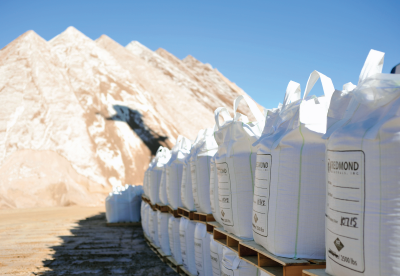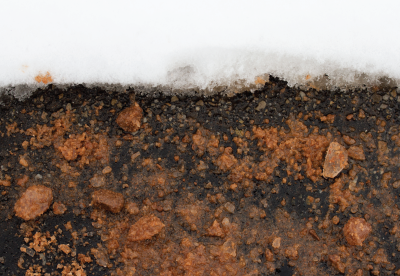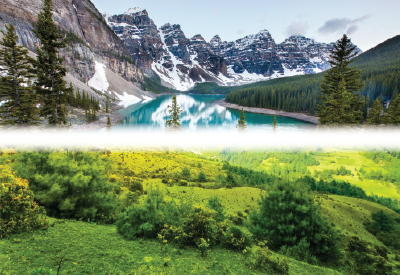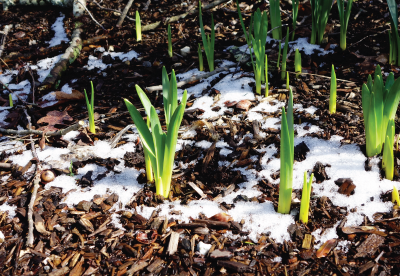Date December 5, 2024 | Brooke Loeffler
Solar Properties of Ice Melt
Solar Radiation
During the daylight hours, light and heat are constantly radiating out from our sun to the Earth’s surface. That radiation can be either absorbed, reflected, or transferred depending upon the surface it hits.
Some materials absorb and retain radiation better than others (ie. concrete and brick can hold onto heat for a lot longer than glass or plastic). Another factor that influences how well a surface absorbs light and heat is its color.
The Role of Color: Reflection vs. Absorption
You and your pets have probably noticed how hot black asphalt can get on a sunny day, and that light grey concrete tends to feel cooler. That is because darker colors absorb light and heat, where lighter colors reflect light and heat away.
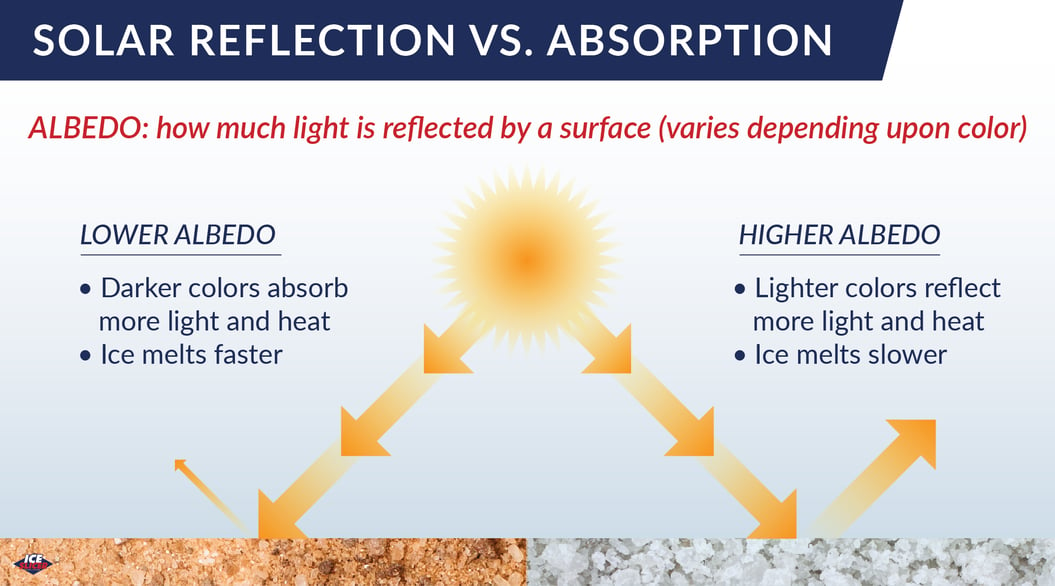
Albedo
The amount of light reflected by a surface is known scientifically as albedo. This term is most frequently used by environmental scientists to show how white ice reflects more light and heat than dark seawater. Albedo is commonly rated between the values of 0 to 1 (0=black surface, 1=white surface).
Ice Melt Color
For this reason, darker colored ice melt works better than lightly colored ice melt. Some deicer manufacturers will add liquid dyes to their salt crystals in order to lower their albedo and make them melt faster. Darker colors also make it easier to see where ice melt has been applied because, they contrast with the white snow and transparent ice.
Dyed vs. Natural
So now that we know that darker colors = faster ice melting performance, let’s examine the side effects of adding liquid dyes to a granular deicer.
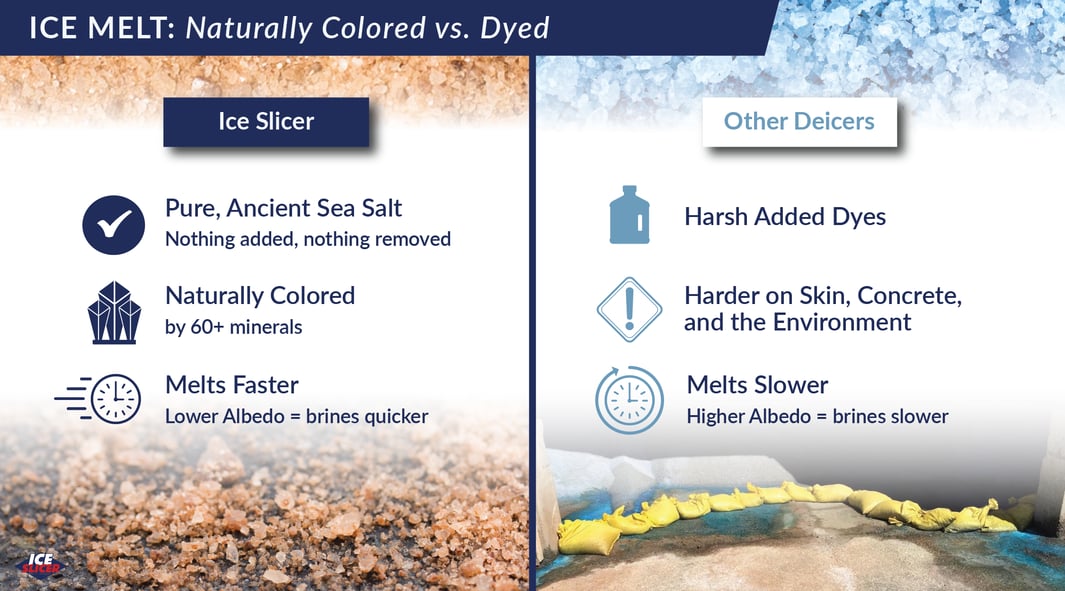
Added Dyes
Unfortunately, in the quest to boost performance, there are some negative effects of adding liquid dyes. Added dyes are harsher on sensitive tissues like skin, can stain and damage concrete, and can also harm the environment. According to the EPA, substances found in dyes can bio-accumulate and “dyes tend to absorb ultraviolet radiation and have the potential to form decay products more toxic than the original parent dye compound.”
Ice Slicer: Natural Color, No Added Dyes
Mother Nature spent over 200 million years giving Ice Slicer its signature reddish hue, lower albedo, and naturally high performance. Harvested from an ancient sea mineral deposit, Ice Slicer contains a natural blend of chloride salts for powerful deicing action, and over 60 minerals that have been proven to reduce corrosion and be safer for the environment. We are proud to offer OMRI Listed® deicing products that outperform white salt across the board.
© 2024 Redmond Minerals Inc.


